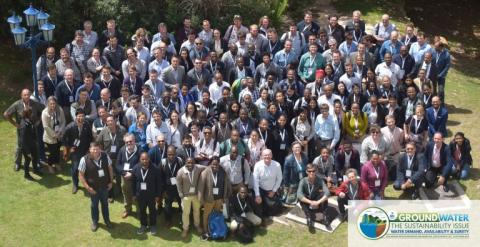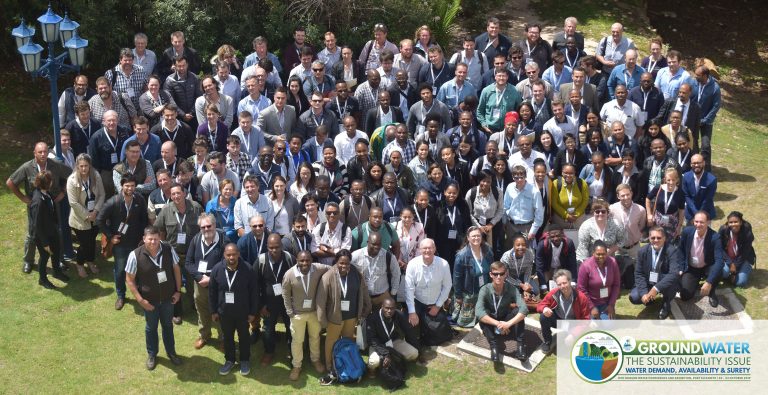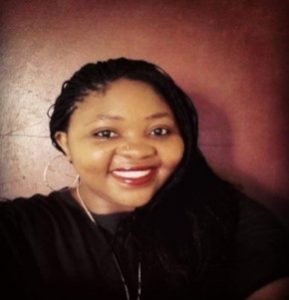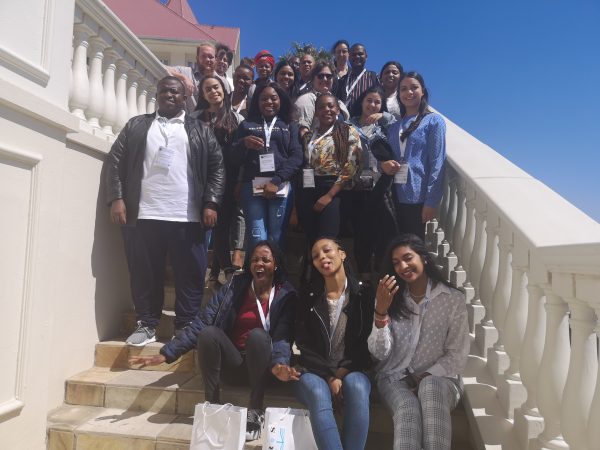GWD ConfEx2019
GWD ConfEx2019


Port Elizabeth, Boardwalk ICC, 21-23 October 2019
GROUNDWATER CONFERENCE – WORKING TOWARDS GROUNDWATER CONSERVATION, SURETY AND MEETING THE DEMAND.

MSc candidate at Walter Sisulu University
Working on water quality research project
South Africa is a water stressed country, faced with an increasing need to safeguard the available water resources and channels. Water security has become a major issue on the International agenda, therefore, water security in relation to water resources and their management in Southern Africa should be well understood. Groundwater plays a major role in addressing the water demands. It is with this regard that the Ground Water Division themed their 16th Ground Water Division Conference as “Demand, Availability and Surety” within the broader theme of Groundwater “The Sustainability Issue”. The conference was organized by the Ground Water Eastern Cape Branch with assistance from the national executive committee. This conference was held in Port Elizabeth from the 20th - 23rd of October 2019. The program of the conference was strategically structured according to different subthemes i.e. groundwater drilling, groundwater management, water conservation as well as groundwater science. The conference was productive and very informative, however this article will mainly focus on what happened in the third day of the conference which was on the 22nd of October 2019.
“When the well is dry, we will know the worth of water” Benjamin Franklin
Gert Nel, Conference Chair, gave a good talk on water security during the opening session of the third day which was chaired by Nicolette Vermaak. He stressed that water security are a major issue, and advised that research should be used to inform the municipalities about water. He also highlighted the solutions which can be implemented to solve this issue. In his solutions he mentioned that the gap between water managers and users should be bridged, he further advised that the municipalities should conduct groundwater workshops and schools should have groundwater education programmes. In conclusion he urged water users to understand and respect each other’s needs.
The session became even more interesting and inspiring when two awards were presented by Dr Matthys Dippenaar, National GWD Chairperson. The GWD Honorary Member Award was presented to Willem du Toit, recently retired from the Department Water and Sanitation and also manager of the very successful GRIP (Ground Water Resource Information Project) project in Limpopo. A GWD Institutional Award was presented to Water Research Commission and it was received by Dr Shafick Adams who later gave an enlightening talk on conserving groundwater through conserving groundwater knowledge. In his talk he emphasized that groundwater is not a solution on its own for the water crisis but it forms part of the ‘package’ of solutions. He also pointed out that the municipalities don’t have qualified groundwater personnel even though they make use of the groundwater, and highlighted that the problem at hand in water conservation is the failure to move beyond policy making – failure to go out on the field to solve problems practically.
An interesting talk on the role of brackish groundwater in water security during ‘Monitoring/ Security’ session was given by Dr Kevin Pietersen (UWC), highlighting that rain water in the future cannot be reliable (groundwater is dependent on rainwater for recharge) hence groundwater use should be monitored. This presentation was followed by an informative talk on ‘turning the tide – curbing groundwater’ by Gawie Van Dyk (DWS), he pointed out that the aquifers decline due to overuse and less recharge. He further highlighted an effective groundwater management case-study using the Tosca-Molopo example. This talk was followed by an interesting presentation by Neville Paxton (GEOSS) providing useful information on The value of monitoring using the case study of an artesian borehole, outlining the causes of artesian conditions. This session ran parallel with another session titled ‘SOFTWARE/ DATA’ chaired by Sivashni Naicker (DWS).
Aquifer depletion is a largely invisible threat, but that does not make it any less real” Lester R. Brown
Siting/geophysics and compliance ran parallel as the second sessions of the day. The geophysics session was chaired by Dr Francois Fourie (UFS). The talks presented in this session mainly focused on technical methods related to groundwater assessment, interpretation of geo-electrical resistivity, airborne and ground geophysical surveys to investigate the deep geology and geohydrology, utilization of hydrogeophysical methods for soil moisture measurements to optimize irrigation management and the impact of angled survey lines on ERT surveys using the Wenner (Α) array. Knowledge on these different topics was unpacked by different presenters from various institutions.
"Save water today or tomorrow you’ll pay. It costs money to waste water!” The Dharma Trials
After lunch, a groundwater conservation session was facilitated by Etienne Mouton. The first part of this session was mainly presentations followed by an enlightening panel discussion. The session started with a talk by Sivashni Naicker (DWS) who enlightened the attendees about groundwater in sustainable development goal 6 using the South African case study. Fanus Fourie gave an interesting talk highlighting the relationship between groundwater governance and management at local municipal level, for a better understanding on governance he used a scenario whereby a local municipality can be a water service authority but not a water service provider and another scenario whereby a local municipality can both be a water service authority and water service provider with Department of Water and Sanitation regional or provincial office. On management he advised that aquifer recharge should be planned and done prior to a water crisis, and that efficient water use should be promoted, he also recommended that water contamination should be mitigated so that the contaminants don’t move from one site to the next. He concluded his talk by advising that the water service providers should consider water reuse before utilising groundwater, he also recommended that groundwater should be conserved while it’s still underground.
Moving forward in an enlightening manner, under the topic “managing groundwater at local level and implementation of national and international initiatives at local level” a panel discussed and shared with the attendees tactics which can be useful in managing the groundwater at local level. The panelists advised that every water scheme funded by the government should have some groundwater personnel – someone with clear understanding of groundwater. They also recommended that the water schemes should be implemented according to design and should be constantly checked – i.e. obligatory monitoring. Furthermore, the panelists advised that on the academic point of view - students should be equipped with all the necessary skills and knowledge they will require in the real world. Moreover, the panel suggested that at local level there should be monitoring committees to attend to conflicts at local level, and in this way people will be involved in the management level. As part of the resolutions the floor, at large, concurred with the panel that all the schemes should be audited and there should be a fine for the ones that are not doing well. Additionally, the panel and everyone agreed that groundwater levels should be reported frequently just like dam levels, and it was noted that because groundwater is invisible, it tends to be given less attention in terms of reporting the levels and this should be changed. Furthermore, information sharing on a central database was suggested so that the current and future scientific studies will not repeat what has already been done, and it was suggested that the students should be given more support to attend conferences like this in order for them to learn from these knowledge sharing platforms. The conference programme comprised of enlightening and inspiring presentations and provided an inspirational opportunity for learning and networking. Furthermore, the conference provided a good platform for the experts and scholars to discuss resolutions to the current water issues that the country is facing. A sincere gratitude goes to all the sponsors, Ground Water Division personnel and everyone who was involved in planning and making the conference successful.

Photo Albums: